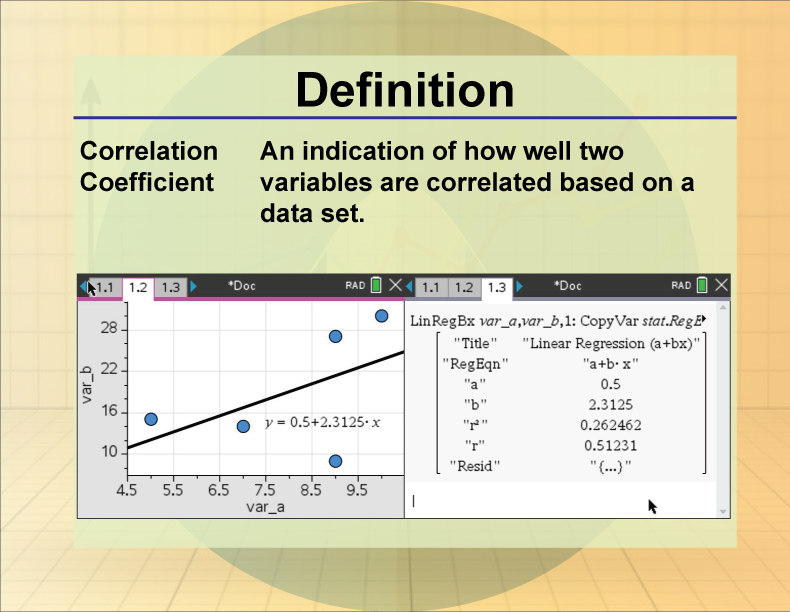
Display Title
Definition--Statistics and Probability Concepts--Correlation Coefficient
Display Title
Correlation Coefficient

Topic
Statistics and Probability
Definition
The correlation coefficient is a measure that quantifies the degree to which two variables are related.
Description
The correlation coefficient is crucial in statistics for determining the strength and direction of a linear relationship between two variables. This measure is widely used in fields such as finance, where it helps in assessing the relationship between different financial instruments, or in psychology to understand the relationship between different behavioral metrics. A correlation coefficient close to 1 or -1 indicates a strong relationship, while a value close to 0 indicates a weak relationship. Understanding the correlation coefficient is vital for students to interpret data and make predictions based on statistical analysis.

For a complete collection of terms related to Probability and Statistics click on this link: Probability and Statistics Collection.
| Common Core Standards | CCSS.MATH.CONTENT.6.SP.B.4, CCSS.MATH.CONTENT.6.SP.A.2, CCSS.MATH.CONTENT.HSS.ID.A.1, CCSS.MATH.CONTENT.HSS.ID.A.2, CCSS.MATH.CONTENT.HSS.ID.A.3, CCSS.MATH.CONTENT.HSS.ID.A.4 |
|---|---|
| Grade Range | 8 - 12 |
| Curriculum Nodes |
Algebra • Probability and Data Analysis • Data Analysis |
| Copyright Year | 2020 |
| Keywords | statistics, probability |